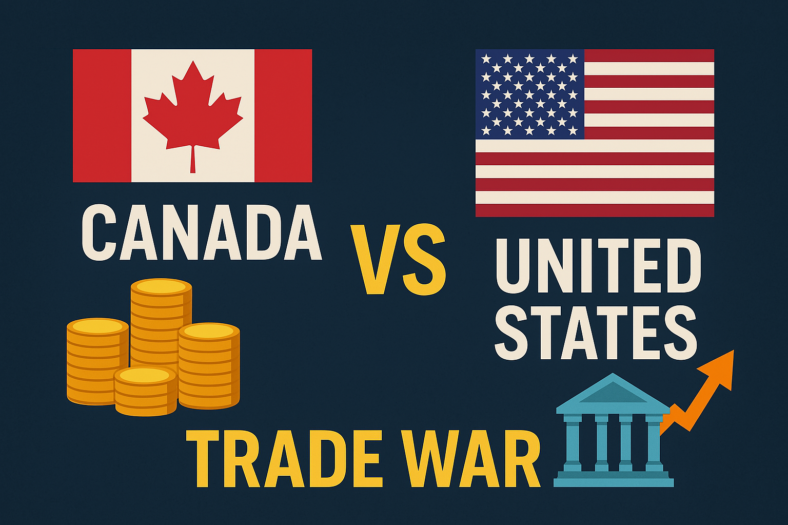Welcome to the comprehensive guide on the best private lenders in Canada! Whether you’re an aspiring entrepreneur looking for startup capital, a homeowner seeking to renovate your property, or an individual in need of a personal loan, navigating the landscape of private lending can be daunting. However, fear not! This guide is designed to be your roadmap through the maze of private lending options available across the Great White North.
In Canada, private lenders play a crucial role in providing financial solutions to individuals and businesses who may not qualify for traditional bank loans or prefer alternative financing options. From small-scale lenders operating in local communities to large financial institutions offering specialized lending products, the private lending sector offers a diverse array of choices.
Throughout this guide, we will delve into the intricacies of private lending, exploring the key factors to consider when choosing a lender, understanding the different types of loans available, and highlighting the top private lenders across various categories. Whether you’re seeking flexibility, speed, or tailored financing solutions, there’s a private lender in Canada that can meet your needs.
Join us as we embark on a journey to uncover the best private lenders in Canada, empowering you to make informed decisions and secure the financial support you require. Let’s dive in!
Best Private Lenders in Canada: Our Top Picks
What is a private lender?
A private lender is an individual or institution that provides loans to borrowers, typically outside the realm of traditional banking institutions such as banks or credit unions. These lenders can include individuals, private equity firms, hedge funds, or specialized lending companies. Private lending arrangements are often characterized by more flexible terms, faster approval processes, and a greater willingness to extend credit to borrowers who may not qualify for conventional bank loans due to reasons such as poor credit history, unconventional income sources, or unique financing needs.
Private lenders operate in a variety of sectors, including real estate, small business financing, personal loans, and more. They can offer a range of loan products tailored to specific borrower needs, such as bridge loans, hard money loans, peer-to-peer lending, and asset-based lending. While private loans may come with higher interest rates compared to traditional bank loans, borrowers often choose private lenders for their quick decision-making processes and ability to provide financing for non-standard situations.
In summary, a private lender is an entity or individual that extends loans outside of the traditional banking system, offering alternative financing options to borrowers with diverse needs and circumstances.
What types of loans do private lenders offer in Canada?
Private lenders in Canada offer a variety of loan products tailored to the specific needs of borrowers. Here are some common types of loans offered by private lenders in Canada:
Bridge Loans: Bridge loans are short-term loans typically used to bridge the gap between the purchase of a new property and the sale of an existing one. They are useful for homeowners looking to buy a new home before selling their current one or for real estate investors seeking to finance a property acquisition quickly.
Hard Money Loans: Hard money loans are asset-based loans secured by the value of real estate collateral. These loans are often used by real estate investors or property developers who need quick financing for purchasing, renovating, or refinancing investment properties. Hard money loans typically have shorter terms and higher interest rates compared to traditional bank loans.
Personal Loans: Private lenders may also offer personal loans to individuals for various purposes, such as debt consolidation, home renovations, medical expenses, or other personal financial needs. Personal loans from private lenders may be more accessible to borrowers with poor credit history or non-traditional income sources.
Small Business Loans: Private lenders provide financing solutions for small businesses, including startup capital, working capital loans, equipment financing, and expansion loans. These loans may be particularly attractive to entrepreneurs who may not qualify for traditional bank loans due to limited credit history or lack of collateral.
Peer-to-Peer (P2P) Loans: Some private lending platforms facilitate peer-to-peer lending, where individual investors fund loans for borrowers through an online platform. P2P loans may offer competitive interest rates and flexible terms, making them an alternative financing option for individuals and small businesses.
Construction Loans: Private lenders may offer construction loans to finance the development or renovation of residential or commercial properties. These loans provide funding for construction costs, including materials, labor, and other expenses associated with the project.
Debt Consolidation Loans: Private lenders may offer debt consolidation loans to help individuals consolidate multiple debts into a single loan with a lower interest rate or more favorable terms. Debt consolidation loans can help borrowers simplify their finances and reduce their overall debt burden.
These are just a few examples of the types of loans offered by private lenders in Canada. Each lender may have its own unique loan products and eligibility criteria, so borrowers should carefully research and compare their options before choosing a private lender.
Pros and cons of private lenders
Private lenders offer alternative financing solutions that can be advantageous for certain borrowers, but they also come with their own set of pros and cons. Let’s explore these:
Pros:
Flexible Eligibility Criteria: Private lenders often have more flexible eligibility requirements compared to traditional banks, making it easier for borrowers with less-than-perfect credit history or non-standard income sources to qualify for loans.
Quick Approval Process: Private lenders typically offer faster approval processes and funding timelines compared to banks, allowing borrowers to access financing quickly, which can be crucial in time-sensitive situations such as real estate transactions or business opportunities.
Customized Loan Products: Private lenders can offer customized loan products tailored to the specific needs of borrowers, allowing for more personalized financing solutions that may not be available through traditional banks.
Accessibility: Private lenders may provide financing options for borrowers who may not qualify for loans from traditional banks due to factors such as self-employment, short credit history, or unconventional sources of income.
Less Stringent Documentation: Private lenders may require less documentation compared to banks, streamlining the application process and reducing paperwork for borrowers.
Cons:
Higher Interest Rates: Private loans often come with higher interest rates compared to traditional bank loans, reflecting the increased risk taken on by private lenders and the shorter loan terms typically associated with private financing.
Shorter Loan Terms: Private loans typically have shorter repayment terms compared to traditional bank loans, which can result in higher monthly payments and potentially higher overall borrowing costs for borrowers.
Risk of Predatory Lending: Some private lenders may engage in predatory lending practices, such as charging exorbitant fees or imposing unfair terms on borrowers, which can lead to financial hardship or even foreclosure in extreme cases.
Limited Consumer Protections: Borrowers may have fewer consumer protections when dealing with private lenders compared to banks, as private lending transactions are often subject to less regulatory oversight.
Asset Collateralization: Private lenders may require borrowers to provide collateral, such as real estate or other assets, to secure the loan, increasing the risk of losing valuable assets in the event of default.
Overall, while private lenders offer alternative financing options that can be beneficial for certain borrowers, it’s essential for individuals to carefully weigh the pros and cons and thoroughly research potential lenders before entering into any financing agreements.
How to find the best private lender in Canada
Finding the best private lender in Canada involves thorough research and consideration of various factors to ensure that the lender meets your specific needs and offers favorable terms. Here’s a step-by-step guide on how to find the best private lender in Canada:
Identify Your Financing Needs: Determine the type of loan you need (e.g., mortgage, personal loan, business loan) and your specific borrowing requirements, such as loan amount, repayment terms, and interest rate preferences.
Research Private Lenders: Use online resources, directories, and search engines to compile a list of private lenders operating in Canada. Look for lenders that specialize in the type of loan you’re seeking and have a reputation for reliability and transparency.
Read Reviews and Testimonials: Look for reviews and testimonials from previous borrowers to gauge the experiences of others with potential lenders. Pay attention to feedback regarding customer service, loan terms, and overall satisfaction.
Check Credentials and Licensing: Verify that the private lenders you’re considering are reputable and licensed to operate in Canada. Check if they are registered with relevant regulatory bodies or industry associations, such as the Canadian Mortgage Brokers Association (CMBA) or the Private Capital Markets Association of Canada (PCMA).
Compare Loan Terms: Request loan quotes from multiple private lenders and compare the terms and conditions of their loan offers. Pay attention to interest rates, fees, repayment terms, and any additional features or benefits offered by each lender.
Evaluate Customer Service: Assess the level of customer service provided by each lender, including responsiveness to inquiries, clarity of communication, and willingness to address your concerns or questions.
Review Contract Terms: Carefully review the terms of any loan contracts or agreements provided by potential lenders. Pay attention to details such as interest rates, repayment schedules, prepayment penalties, and any other relevant terms or conditions.
Consider Reputation and Experience: Choose a private lender with a solid reputation and a track record of success in the lending industry. Look for lenders with years of experience, positive client testimonials, and a history of ethical business practices.
Seek Recommendations: Ask friends, family members, or trusted advisors for recommendations on reputable private lenders they may have worked with in the past. Personal referrals can provide valuable insights and help you narrow down your options.
Consult with Professionals: Consider seeking guidance from financial advisors, mortgage brokers, or legal professionals who specialize in private lending. They can offer expert advice and assistance in navigating the process of selecting the best private lender for your needs.
By following these steps and conducting thorough research, you can identify the best private lender in Canada that offers competitive loan terms, excellent customer service, and a reliable reputation in the industry.
Fees that private lenders charge in Canada
Private lenders in Canada may charge various fees in addition to the interest rate on the loan. These fees can vary depending on the lender, the type of loan, and the specific terms of the borrowing arrangement. Here are some common fees that private lenders may charge in Canada:
Origination Fee: An origination fee, also known as an administration or processing fee, is charged by the lender to cover the cost of processing the loan application and setting up the loan. This fee is typically a percentage of the loan amount and is deducted from the loan proceeds.
Brokerage Fee: If you work with a mortgage broker to connect with a private lender, the broker may charge a brokerage fee for their services. This fee is usually negotiated between the borrower and the broker and can vary depending on the complexity of the loan transaction.
Legal Fees: Private lenders may require borrowers to cover legal fees associated with drafting and reviewing loan documents, conducting title searches, and registering security interests. These fees can vary depending on the complexity of the legal work involved and are typically paid by the borrower.
Appraisal Fee: In real estate transactions, private lenders may require borrowers to obtain an appraisal of the property to assess its value. The borrower is responsible for paying the appraisal fee, which can range from a few hundred to a few thousand dollars depending on the size and complexity of the property.
Renewal Fee: If the borrower chooses to renew or extend the term of the loan, the lender may charge a renewal fee. This fee is typically assessed at the time of renewal and is added to the outstanding loan balance.
Prepayment Penalty: Some private lenders impose a prepayment penalty if the borrower pays off the loan before the end of the term. This fee is intended to compensate the lender for the interest income they would have earned if the loan had been repaid according to the original schedule.
Late Payment Fee: If the borrower fails to make a scheduled loan payment on time, the lender may charge a late payment fee. This fee is typically a percentage of the overdue amount or a flat fee and is intended to compensate the lender for the inconvenience and administrative costs associated with late payments.
It’s important for borrowers to carefully review the loan agreement and disclosure documents provided by the lender to understand all applicable fees and charges associated with the loan. Additionally, borrowers should compare fee structures from multiple lenders to ensure they’re getting the best overall deal for their borrowing needs.
What are the requirements to apply for a loan with a private lender?
The specific requirements to apply for a loan with a private lender in Canada can vary depending on the lender and the type of loan you’re seeking. However, there are some common criteria that many private lenders typically consider when evaluating loan applications. Here’s an overview of the requirements you may encounter when applying for a loan with a private lender:
Credit History: Private lenders may review your credit history to assess your creditworthiness and determine the risk of lending to you. While some private lenders are willing to work with borrowers with less-than-perfect credit, a strong credit history can improve your chances of approval and may result in more favorable loan terms.
Income and Employment: Private lenders may require proof of income and employment to verify your ability to repay the loan. This can include pay stubs, bank statements, tax returns, or other documentation showing your income sources and employment status. Self-employed borrowers may need to provide additional documentation, such as profit and loss statements or business tax returns.
Debt-to-Income Ratio: Private lenders may assess your debt-to-income ratio, which compares your monthly debt payments to your gross monthly income. A lower debt-to-income ratio indicates that you have sufficient income to cover your existing debts and the proposed loan payment, which can improve your chances of approval.
Down Payment or Equity: Depending on the type of loan you’re applying for, private lenders may require a down payment or equity in the collateral property to secure the loan. This demonstrates your financial commitment to the loan and reduces the lender’s risk.
Collateral: Private lenders may require collateral to secure the loan, especially for larger loan amounts or higher-risk borrowers. Collateral can include real estate, vehicles, investments, or other valuable assets that can be seized by the lender in the event of default.
Documentation: You’ll likely need to provide various documents to support your loan application, including identification (such as a driver’s license or passport), proof of residence, bank statements, tax returns, and any other documentation requested by the lender.
Legal Capacity: You must have legal capacity to enter into a loan agreement, meaning you must be of legal age and mentally competent to understand the terms and obligations of the loan.
Purpose of the Loan: Private lenders may inquire about the purpose of the loan and how you intend to use the funds. Providing a clear explanation of your borrowing needs and how you plan to repay the loan can strengthen your application.
It’s important to note that each private lender may have its own specific requirements and eligibility criteria, so it’s essential to carefully review the lender’s guidelines and prepare your application accordingly. Additionally, working with a mortgage broker or financial advisor can help you navigate the loan application process and increase your chances of approval.
Banks vs Credit Unions vs Private Lenders
Comparing banks, credit unions, and private lenders involves considering various factors, including eligibility requirements, interest rates, loan terms, customer service, and overall flexibility. Here’s a detailed comparison of the three:
Banks:
Eligibility Requirements: Banks typically have stringent eligibility criteria for loan applicants, including good credit history, stable income, and sufficient collateral. They may also require a higher down payment for certain types of loans.
Interest Rates: Banks often offer competitive interest rates, especially for borrowers with excellent credit scores. However, their rates may be less flexible compared to private lenders.
Loan Terms: Banks usually offer a wide range of loan products with flexible terms, including mortgages, personal loans, auto loans, and business loans. Loan terms may vary depending on the borrower’s creditworthiness and the type of loan.
Customer Service: Banks generally provide robust customer service, including in-person assistance at branches, online banking, and dedicated customer support lines. However, the level of service may vary depending on the size and location of the bank.
Regulation and Oversight: Banks are heavily regulated and subject to oversight by federal and provincial regulatory agencies to ensure compliance with banking laws and consumer protection regulations.
Credit Unions:
Eligibility Requirements: Credit unions often have more flexible eligibility criteria compared to banks, making them accessible to a broader range of borrowers. They may be more willing to work with individuals with limited credit history or non-traditional income sources.
Interest Rates: Credit unions typically offer competitive interest rates, similar to those of banks. However, rates may vary depending on factors such as creditworthiness and loan term.
Loan Terms: Credit unions offer a variety of loan products, including mortgages, personal loans, auto loans, and small business loans. They may also offer special programs for first-time homebuyers or individuals with low credit scores.
Customer Service: Credit unions are known for their personalized customer service and community-focused approach. Members often have direct access to decision-makers and may receive more individualized attention compared to larger banks.
Ownership and Governance: Credit unions are member-owned financial cooperatives, meaning that members have a say in the institution’s governance and decision-making processes. This democratic structure can result in a stronger sense of community and member engagement.
Private Lenders:
Eligibility Requirements: Private lenders typically have more flexible eligibility requirements compared to banks and credit unions. They may be willing to work with borrowers with poor credit history, self-employed individuals, or those with unconventional income sources.
Interest Rates: Private lenders often charge higher interest rates compared to banks and credit unions, reflecting the increased risk associated with lending to higher-risk borrowers.
Loan Terms: Private lenders offer a variety of loan products, including mortgages, personal loans, and business loans. However, loan terms may be less flexible compared to traditional lenders, and repayment schedules may be shorter.
Customer Service: Customer service levels can vary among private lenders. While some may offer personalized service and quick approval processes, others may have limited customer support and higher fees.
Regulation and Oversight: Private lenders are subject to less regulatory oversight compared to banks and credit unions. As a result, borrowers should exercise caution and carefully review loan terms and conditions before entering into an agreement with a private lender.
In summary, banks, credit unions, and private lenders each have their own advantages and disadvantages. Borrowers should carefully consider their financial needs, creditworthiness, and preferences when choosing the best lender for their situation.
Can you get a loan from a private lender if you have bad credit?
Yes, it is possible to obtain a loan from a private lender even if you have bad credit. Private lenders are often more flexible in their eligibility criteria compared to traditional banks, which means they may be willing to work with borrowers who have less-than-perfect credit histories. However, it’s important to note that having bad credit may impact the terms of the loan, including the interest rate, loan amount, and repayment terms.
Here are some factors to consider when seeking a loan from a private lender with bad credit:
Higher Interest Rates: Private lenders may charge higher interest rates to borrowers with bad credit to compensate for the increased risk of default. Be prepared for higher borrowing costs compared to borrowers with good credit.
Secured Loans: Private lenders may require collateral to secure the loan, especially for borrowers with bad credit. Collateral can include real estate, vehicles, or other valuable assets that can be seized by the lender in the event of default.
Shorter Loan Terms: Private lenders may offer shorter loan terms for borrowers with bad credit to minimize their risk exposure. Shorter loan terms mean higher monthly payments, so make sure you can afford the payments before agreeing to the loan terms.
Documentation: Be prepared to provide documentation to support your loan application, including proof of income, employment history, and any other relevant financial information. Providing thorough documentation can help demonstrate your ability to repay the loan despite your bad credit.
Shop Around: It’s essential to shop around and compare loan offers from multiple private lenders to find the best terms and rates for your situation. Each lender may have different eligibility requirements and loan terms, so exploring your options can help you find the most suitable loan.
While private lenders may be more lenient in their lending criteria, borrowers with bad credit should be cautious and avoid predatory lending practices. Carefully review the terms and conditions of any loan offer, including interest rates, fees, and repayment terms, before agreeing to the loan. Additionally, consider working with a reputable mortgage broker or financial advisor who can help you navigate the process of obtaining a loan with bad credit and find the best possible financing options for your needs.
FAQs about private lenders in Canada
A private lender is an individual or institution that provides loans to borrowers outside the traditional banking system. Private lenders offer alternative financing solutions and may be more flexible in their lending criteria compared to traditional banks.
Private lenders typically have more flexible eligibility requirements, faster approval processes, and may offer customized loan products tailored to specific borrower needs. However, they often charge higher interest rates and fees compared to banks and credit unions.
Private lenders in Canada offer a variety of loan products, including mortgages, personal loans, business loans, bridge loans, hard money loans, and more. These loans can be used for various purposes, such as real estate investments, debt consolidation, home renovations, and business expansion.
Private lenders may work with a wide range of borrowers, including individuals, real estate investors, small business owners, and those with non-traditional income sources or poor credit history. Eligibility criteria vary depending on the lender and the type of loan.
Some advantages of borrowing from a private lender include faster approval processes, more flexible eligibility requirements, and the ability to obtain financing for non-standard situations. Private lenders may also offer personalized service and customized loan products.
Disadvantages of borrowing from a private lender may include higher interest rates, fees, and shorter loan terms compared to traditional lenders. Private loans may also carry greater risk, especially for borrowers with poor credit history or limited collateral.
You can find reputable private lenders in Canada by researching online, asking for recommendations from trusted sources, working with mortgage brokers or financial advisors, and carefully reviewing lender credentials, reviews, and loan terms.
Before borrowing from a private lender, consider factors such as your financial needs, creditworthiness, loan terms, interest rates, fees, repayment options, and the lender’s reputation. It’s essential to carefully review all loan documents and ensure you understand the terms and conditions before proceeding.
In conclusion, navigating the landscape of private lending in Canada offers a myriad of opportunities for borrowers seeking alternative financing solutions. Throughout this guide, we’ve explored the diverse array of private lenders operating across the country and delved into the intricacies of their loan products, eligibility criteria, and application processes.
From individuals in need of personal loans to entrepreneurs seeking startup capital and real estate investors looking for property financing, private lenders offer a flexible and accessible avenue for obtaining funding outside the traditional banking system. Their willingness to cater to borrowers with diverse needs, including those with poor credit history or unconventional income sources, makes them a valuable resource in the Canadian financial landscape.
However, it’s essential for borrowers to approach private lending with caution and due diligence. While private lenders can offer expedited approval processes and customized loan products, they may also come with higher interest rates, fees, and shorter loan terms compared to traditional lenders. Therefore, it’s crucial for borrowers to carefully review all loan terms, assess their financial situation, and consider all available options before proceeding with a private loan.
By leveraging the insights provided in this guide and conducting thorough research, borrowers can make informed decisions and select the best private lender in Canada to meet their specific borrowing needs. Whether you’re looking to purchase a home, consolidate debt, or finance a business venture, the right private lender can help you achieve your financial goals and secure the funding you need to succeed.
We hope this guide has been a valuable resource in your journey to find the best private lender in Canada. Remember to explore your options, ask questions, and seek guidance from professionals as needed to make the most of your borrowing experience. Here’s to your success in securing the financing you need to thrive in Canada’s dynamic economy.




















